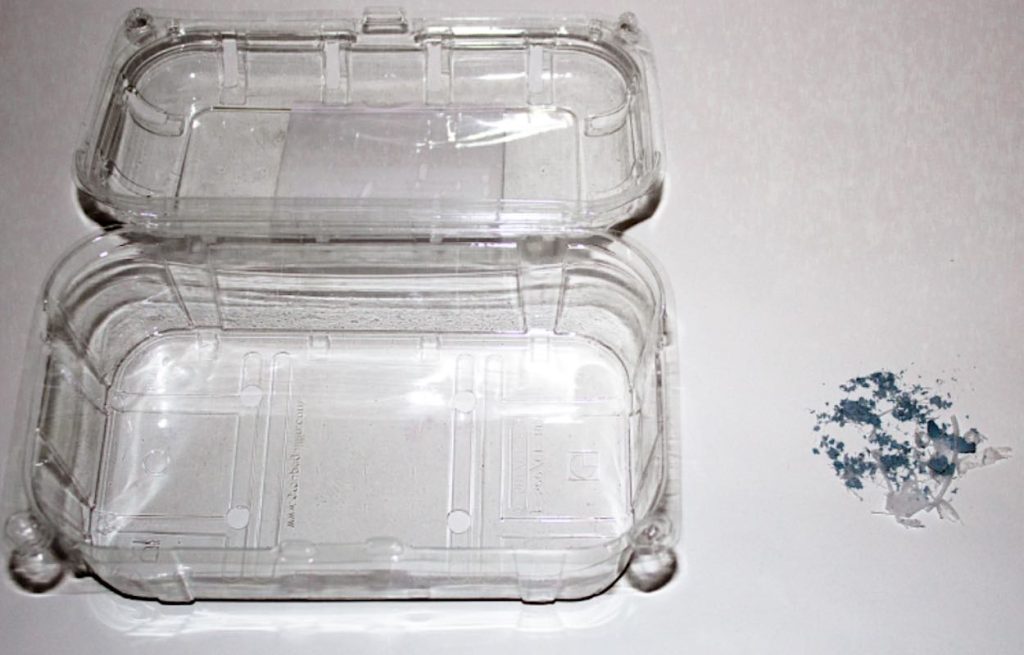 Before and After: A container of PET after 24 hours of contact with the enzyme leaves only dye – Christian Sonnendecker
Before and After: A container of PET after 24 hours of contact with the enzyme leaves only dye – Christian SonnendeckerA German bio-tech company has developed a naturally-occurring enzyme discovered in a cemetery into a near-market ready solution for recycling plastic without any loss of quality.
In 2022, GNN reported on a paper published by Leipzig-based scientists who first identified the enzyme. At the time, the enzyme was subject to a small side-by-side test, and caused the polyethylene terephthalate (PET) plastic to decompose by a whopping 90%.
Fast forward to the spring of 2025 and those same scientists have perfected the capabilities of that enzyme, called PHL7, and have founded ESTER Biotech to bring those capabilities to market.
Their initial plan to be finished next year is a bathtub-sized pilot project reactor. If successful, their 2030 plan will be four 350 cubic-meter reactors capable of processing 45,000 metric tons of PET plastic every year.
PHL7 and ESTER Biotech boast several advantages over chemical and thermal recycling methods. For starters, once the polymers of PET are broken by the enzyme into monomers, or single component parts, they have suffered no degradation of their material characteristics unlike some recycled plastic which is weaker or less stable.
Additionally, PHL7 is exceptionally stable from 32 to 203 degrees Fahrenheit (0-95°C), and per kilogram of plastic, a dose of only 0.02% to 0.06% of the enzyme is required—substantially less than existing alternatives. Their new version of the enzyme also recycles the plastic several hours faster.
“Our technology makes it possible to bring material flows that are currently burned back to the beginning of the cycle at the molecular level,” says Christian Sonnendecker, lead author on the paper of the enzyme’s discovery, and co-founder of ESTER Biotech at the University of Leipzig. “And with high energy efficiency and scalability.”
“We are only at the beginning. But we are convinced that when science, entrepreneurial spirit and social responsibility come together, a cemetery enzyme can become a beacon of hope for a better future.”
RECYCLING BREAKTHROUGHS:
ESTER Biotech’s enzyme is able to separate certain multilayer composites which are normally thought of as unrecyclable. In addition to the infrastructure of the pilot project, ESTER is currently working with two medium-sized partners to build a cost-efficient supply chain with an aim to reduce the enzyme price to between 100 and 200 euros per kilogram.
Though no currently-commercialized recycling method can compete with the cost of virgin plastic, a price between 100 and 200 euros will put it in line with existing competitors.
Fortunately for anyone in the space, the EU is not afraid to use heavy-handed regulation to guarantee plastic recycling rates. By 2040, under existing EU legislation, 65% of plastic production will be mandated to come from recycled sources. ESTER believes that with its potential to offer a higher quality “recyclate,” the incentive to pursue and expand enzymatic methods will increase.
SHARE This Great Update On A Tremendous Discovery With Your Friends…
Source link

